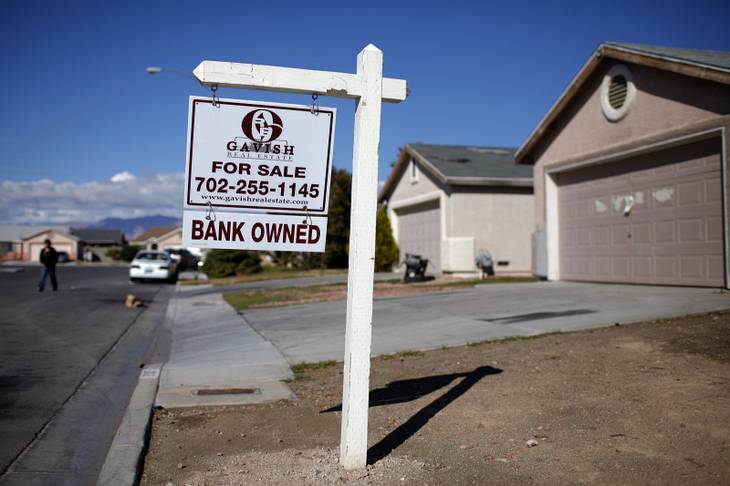Las Vegas’ housing market is one of the most overvalued in the country, as investors pushed up prices amid limited supply and a sluggish economy, a new report says.
Fitch Ratings said today that housing demand in Las Vegas, along with other boom-and-bust areas including Miami and Phoenix, has been “bolstered” by outside investors.
The cities also have high rates of underwater homeowners, restricting the number of properties for sale.
In these areas, small changes in demand have had “an outsized impact on price,” and growth is “expected to be more fragile than true demand-based expansion,” Fitch analysts wrote.
The research and bond-ratings company ranked Las Vegas the seventh most overvalued market in the nation, after Austin, Texas; Houston; Phoenix; Riverside, Calif.; Miami; and San Antonio.
Las Vegas home prices, despite slowing in recent months, have been climbing at one of the fastest rates in the country the past few years.
The valley also has one of the highest rates of underwater borrowers — people whose mortgage debt outweighs their home value — in the nation, reflecting once-widespread, bloated prices and the easy mortgage lending behind them.
Nearly 149,000 valley homeowners escaped underwater status the past few years, according to housing-data firm Zillow, thanks to the investor-fueled upswing in values. But 26 percent of Southern Nevada homeowners still are underwater, third highest among large U.S. metro areas.
Such homeowners need bank approval to sell their house, a lengthy, often hair-pulling process known as a short sale. Banks don’t always sign off on the deals, and many borrowers probably choose to stay put rather than try to unload their house.
Home prices in Las Vegas, Phoenix, Riverside and Miami — case studies for last decade’s bubble and burst — have all climbed more than 45 percent since mid-2011, “despite comparatively modest economic growth,” Fitch said.
Investors swooped in for low-priced homes after the economy collapsed, often turning them into rentals. They helped battered housing markets recover, pushing up prices at eye-popping rates and raising fears of another bubble.
But the investors left markets “dependent on external demand sources,” according to Fitch. These days, investors have been backing out from Las Vegas and other cities, and price-growth has cooled substantially.
Fitch said it does not expect “significant declines” in Las Vegas and other overvalued markets, but those areas are “more susceptible” to slumping prices than cities fueled by “strong underlying fundamentals.”
The median sales price of single-family homes last month in Southern Nevada was $205,000, up 8 percent from a year ago, according to the Greater Las Vegas Association of Realtors, which mostly tracks previously owned homes.
By comparison, single-family home prices jumped 57 percent in two years after the market bottomed out, from a median $118,000 in January 2012 to $185,000 in January 2014.
Some analysts say that, with investors backing out, Las Vegas will have to depend more on traditional buyers. But that could turn the slowdown into a slump, as Nevadans have some of the worst personal finances in the country, and many locals can’t get a mortgage because of tighter lending requirements.
“We’re not in a healthy situation,” John Restrepo, principal of RCG Economics, said last fall.
